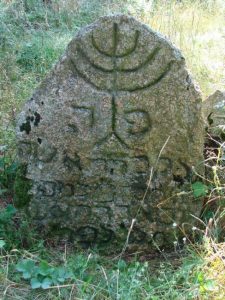Rakov
The first reference to a Jewish community in Raków, in 1623, appears in a Jewish source, the minute book of the Vaad medinat Lita (Council of the Land of Lithuania). In 1897 the Jews numbered 2,168, comprising 60 percent of the total population of the town.
Most of the Jews made their living from petty commerce and crafts, mainly from making clayware, and from agriculture. A small proportion earned their livelihood by leasing assets or prerogatives or by wholesale trade in lumber, flax, or grain.
During World War I a number of local Jewish men were drafted and the economic situation of the population deteriorated. In 1915 Raków served as a refuge for Jews who had been deported by the Russian army after being accused of collaborating with the German enemy. After the war Jewish religious institutions were revived and Jewish cultural and political activity flourished. Jewish youth movements and Hebrew-language schools belonging to the Tarbut network and Yiddish ones affiliated with the Tsisho (Central Yiddish School Organization) network were established. In the mid-1920s the Jewish population was aproximately 2,400.
After the Molotov-Ribbentrop Pact and the occupation of Poland by German forces, the Red Army entered Raków on September 17, 1939 and the Soviet regime soon consolidated its control. Private businesses, the majority owned by Jews, were nationalized and transformed into cooperatives. The Hebrew schools were closed, Zionist activity was banned, and the Yiddish schools had to adopt the Soviet curriculum.
Raków was occupied by the German army on June 26, 1941. The occupiers immediately began persecuting and killing the local Jews. In October 1941 Raków’s Jews were forced into a ghetto that was set up on the premises of a local synagogue. At the beginning of February 1942 the Germans liquidated the ghetto. Most of the Jews were shot and their bodies burned in the synagogue. A few young people managed to escape the ghetto and joined the partisans. Dozens of other young people were imprisoned in the Krasne labor camp.
Raków was liberated by the Red Army in July 1944.
From: Yad Vashem


